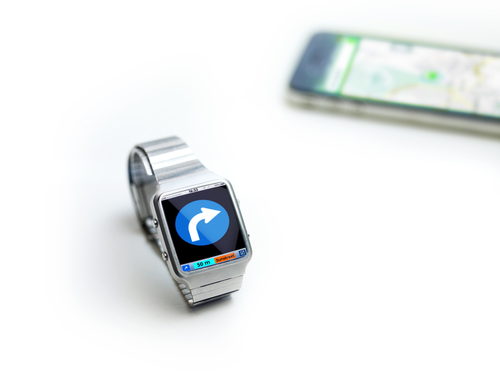In July 2014, Amazon.co.uk announced that it was opening the first ever shop dedicated to just wearable technology. And this was just one of any number of signs that wearable technology, items of ubiquitous computing that enable us to monitor our wellness or fitness, or allow our fashion choices to undergo dynamic changes, is rapidly growing in popularity.
According to analysts Cowen and Company, the global wearables market is currently worth around $10.4 billion, although this is set to explode to around $170 billion by 2020. This incredible figure, equivalent to the 2013 nominal GDP of Vietnam, is derived from five main industries: consumer fitness, lifestyle and entertainment, healthcare, enterprise, and the components of the technology.
With such lucrative returns available, those in the wearables space are battling it out to be a consumer favourite. What is really exciting about this battle is that it seems, in what is a quintessential tech start-up space, the might of Silicon Valley is facing pretty steep competition from more home-grown talent here in London.
Capital trends
London has long held a dominant position in the global economy, well positioned as it is to work across all time zones and also attracting a huge number of financial services. According to some, the city is unrivalled in Europe and faces only genuine competition from New York on the global scale. In September 2014, London Fashion Week became a platform for London to show its market leading credentials in a whole new space – that of wearable fashion technology.
>See also: Wearable technology: looking at the data behind the buzz
London Fashion Week seemed to be the jumping off point for a large number of tech platforms which are merging with everything from clothing to jewellery. Attendees were treated to the brilliant, such as a fibre optic dress, to the absurd, including a ‘selfie hat’.
These type of innovation are not new to the London fashion scene. Former model and mathematician Kate Unsworth, for example, has already made waves in the East London tech scene with her business Kovert Designs. The company creates jewellery which comes embedded with electronic sensors and wireless technology. Linked to a corresponding app, users feel vibrations in the jewellery which alerts them to smartphone notifications.
Also from London is CuteCircuit, which makes outfits which are also controlled by a smartphone app. Having already attracted models in the form of A-list celebrities such as Nicole Scherzinger and Katy Perry, CuteCircuit recently created a dress which displayed live tweets, worn by Scherzinger to the launch event of 4G networks in the UK.
Riding the wave in popularity of wearable fashion technology Westfield even partnered up with Decoded Fashion to host a public hackathon. At the event shoppers were treated to a first-hand view of tech start-ups competing to create enhanced consumer experiences for fashion brands based in the shopping centre.
Wellness watchers
As well as the merging of haute couture and technology, the rise of digital health over the last 12 months has spawned a number of wearable wellness tools created in London. One such tool created by MediWiSe, is a continuous glucose monitoring system, which operates through an on-ear sensor to transmit data to a smartphone app. This app in turn continuously updates the user’s medical records, allowing healthcare professional access to real-time data.
>See also: Wearable technology: a cyber risk on your wrist?
Indeed such is the growing interest in the idea of enabling the consumer to track their healthcare, that even Apple has got involved with two apps, one for fitness and one for workouts, for the Apple Watch. Although this type of technology is by no means earth-shattering, it allows consumers to benefit from having all this information conveniently located in one piece of wearable hardware.
Many of the brands discussed in this article, including Kovert Design and the US brand Skully Helmets, will join other influencers in wearable technology and the Internet of Thing at the first UK GLAZEDcon event.
Wear do we go?
It is without debate that in the last 12 months, the UK has gone from a niche to a thriving wearable technology scene, and it appears to be growing month by month. In the cases of fashion and fitness it has been able to merge the existing design and healthcare environment seamlessly with the tech environment that London has cultivated.
The next space to grow into a dominant wearables industry is financial technology – also going through a boom period in London at the moment. Barclays, having first brought mobile payments to the market with Pingit, is now trialling a contactless payment bracelet, developed by its Barclaycard arm, so the wheels are already in motion.
>See also: What the Apple Watch means for the future of wearable tech
Wearables have certainly landed with a splash and companies need to be paying close attention to the speed of industry developments if they want to spot the next trend. Be warned, if you’re not looking closely, you might just find yourself and your wearable out of fashion before you even get started.
Sourced from Marcus Sandberg, Wearable World










